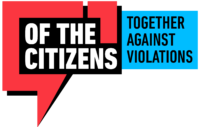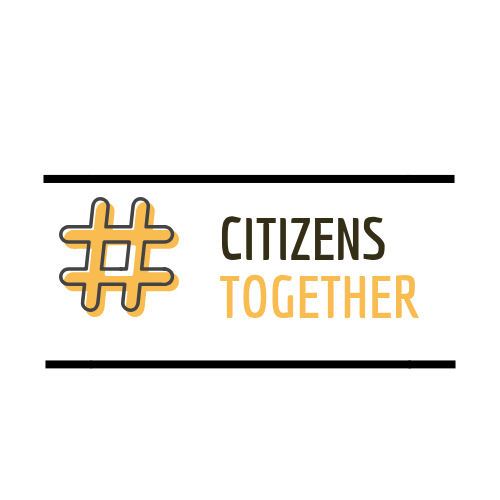Hijab or the veil is currently one of the most controversial issues in India. In Udupi’s Government PU College, 6 Muslim girls students have been denied entry into classrooms and made to sit outside because they were wearing headscarves (Hijab). The students had also complained that they were not allowed to communicate in Urdu, Arabic or the native Beary language.
The girls stood outside the classroom in protest. The students claim that their parents had approached principal Rudra Gowda for talks, but he refused to discuss the matter.
Following this, a few students of Pompei College at Aikala, Mangaluru, came to college donning saffron shawls and demanded the prohibition of headscarves.
Critics of the Muslim veiling/hijab tradition argue that women do not wear the veil by choice but are forced.
However, several Muslim women have argued that the veil symbolizes devotion and piety and that veiling is their own choice. Women in contemporary times have often made statements against Islamobhia and asserted their religious identity.
A Feminist Hana Mohsin Khan refuting the unwarranted controversy on Hijab has asked to stop regulating a women choice, she tweets “Please stop regulating what women and especially Muslim women what to wear. They are free to wear whatever they choose. You wouldn’t ask a Sikh man to remove his turban or presume to regulate his dress”.
In Islam women have been advised to cover them in a way so they can be recognized, “O Prophet, tell your wives and daughters and the women of the believers to draw their cloaks close round them. That will be better, so that they may be recognised & not annoyed. Allah is ever Forgiving, Merciful.” (Quran 33:59).
Another JNU student and Activist Afreen Fatima tweeted “Hijab(head covering) is an obligatory religious requirement in Islam just like the turbans for Sikh men. Forcing Muslim girls to remove it is nothing short of apartheid against Muslims. Islamophobic & discriminatory, PU College administration must be suspended”.
For Islamophobes in India, the dressing culture has been always an issue of overzealous and conflicts.
The islamophobes in India often find Muslim clothing culture incompatible with Western values. And anything which asserts the ‘Muslimness’ troubles the Islamophobics.
A student from Udupi, Karnataka shared a voice recording of a woman Akila Sharma W/o Mr Gangadhar who is the lecturer in the Government pre-university college of Udupi. She says in her voice note “You are supporting those bloody girls. Shame on group of those Men who support those girls to do nonsense”.
Referring to the Girls who were barred from classes for wearing Hijab, Ms Akila adds “She holds no value, the girl who cannot pass, what she’ll have to say against the lecturers. The person who gave her seat should be beaten. That Bloody Girl has signed before the admission”.
The voice message was sent to a boy who takes tuition from Ms Akila. “I had uploaded WhatsApp status in solidarity with the Girls protesting for Hijab, Ms Akila who is the wife of Mr Gangadhar, lecturer in Udupi college, saw my status and sent this voice note”, said the boy
The constitution of India recognizes the right to practice religion and to exercise that Article 25 was embedded in it.
Article 25 of the Constitution guarantees freedom of religion to all persons in India. It provides that all persons in India, subject to public order, morality, health, and other provisions are equally entitled to freedom of conscience, and have the right to freely profess, practice and propagate religion.
However, contrary to the Constitution the Government College in Udupi banned the veil/hijab. And on 31st December, several girls were denied permission to war hijabs inside the colleges.
The college outrightly barred students entrance until the girls remove their Hijab
Karnataka Primary and Secondary Education Minister BC Nagesh backed the principal in Udupi’s Government PU College over the issue saying that the dress code issued by the institution should be respected. “We have discussed this with the state government leadership but there is no law at present and we have not taken a decision on this. It is up to the SDMC to decide on the uniformity in the dress code in schools and colleges. We want to see uniformity for the betterment of the students. The uniform will create a good atmosphere in schools and ensure there is no inferiority complex among students,” Nagesh said.
Udupi MLA and also the president of Girls Government College Raghupathi Bhat call the whole incident a ‘conspiracy’ of some vested interests. The MLA said, “Today if the college allows the students to wear whatever they want, the college might get many other demands from other students. The state government should take serious action in this matter. The government should think about the future of the students. Wearing the uniform refers to equality.
“Dr B R Ambedkar also said that equality should come in education,” the MLA added.
Let us recall famous rulings of the Hon’ble Indian Apex Court and the Kerala High Court respectively in the context;
In 2015, a Hijab-related case reached the Supreme Court. The Central Board of Secondary Education conducting the AIPMT (All India Pre-Medical Test), in a bid to prevent the cheats in the examination, announced a dress code that prohibited full-sleeve shirts and headscarves.
The PIL had requested the court to direct the CBSE to not apply its dress restrictions to Muslim girls in general. The organisation claimed that the code was repugnant to Islam and hence violated Article 25, its members’ fundamental right to freedom of religion.
However, the Supreme Court has differed from this interpretation of Article 25. The apex court has upheld such bans in the past and ruled that the bans do not violate the right to freedom of religion. Supreme court issued a reprimand: “Faith is not connected to the clothes you wear, your faith will not disappear if you go to the examination centre without a headscarf.” The PIL was eventually withdrawn.
In 2018, a Hijab related case reached the Kerala High Court. While the school had prescribed a uniform, the petitioners (Two Muslim Girl Students) wanted to wear a headscarf and full-sleeve shirt. When the school authorities found that their uniforms were inconsistent with the dress code, they were asked to attend school by complying with the dress code. The students then approached the high court by contending that it is part of their fundamental right (Article 25-1).
The court pointed out that while the petitioners had the fundamental right to have the choice of dress based on religious injunctions, the school management had the fundamental right to establish, manage, and administer an institution under Article 19.
The dominant interest represents the larger interest and the subservient interest represents only individual interest. If the dominant interest is not allowed to prevail, subservient interest would march over the dominant interest resulting in chaos. The dominant interest, in this case, is the management of the institution. If the management is not given free hand to administer and manage the institution, that would denude their fundamental right. The Constitutional right is not intended to protect one right by annihilating the rights of others. The Constitution intends to assimilate those plural interests within its scheme without any conflict or in priority. However, when there is a priority of interest, individual interest must yield to the larger interest. That is the essence of liberty,” the judgment stated.
Therefore, the petitioners cannot seek the imposition of their right as against the larger right of the institution, the HC court held while dismissing the petition.
The statements made by the politicians in the Udupi issue seems based on the previous judgments of the Indian Judiciary. The ‘larger right of the institution’ comment mentioned by the Hon’ble Kerala High Court has been misused-applied to strengthen the Islamophobe in the country and eventually curtail the choices and freedom guaranteed by the Constitution.
The bigots are using the judicial comments to furtherance their political agenda. It is enabling Islamophobic politicians to suppress the fundamental rights of the subservient interest (minority).



